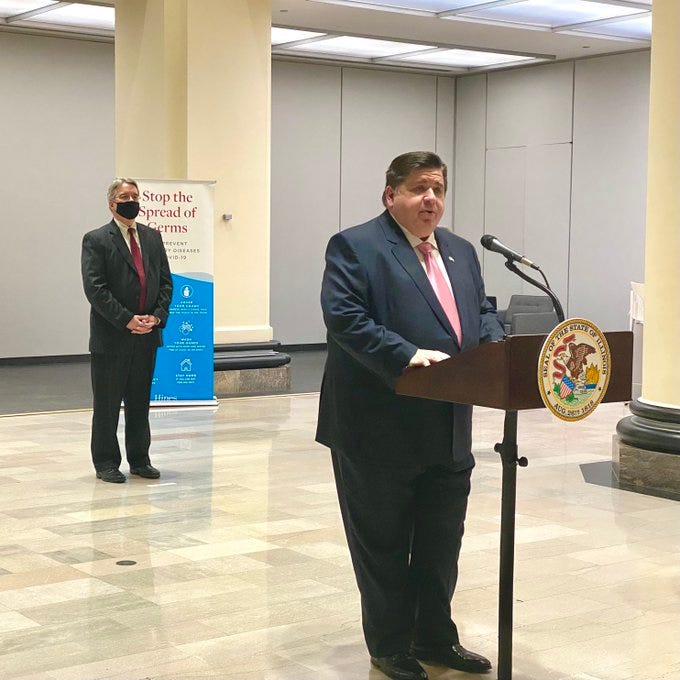
CHICAGO (WBBM NEWSRADIO) -- With COVID rates falling, downtown businesses are starting to make decisions about whether to end remote working and return to offices that have been vacant since March of 2020.
As workers return to the office, the State of Illinois wants to make sure they are fully vaccinated; therefore, Governor Pritzker is launching a new program that offers building workers and returning office staff a chance to get their shot at work.
“Having vaccine available where you work makes getting vaccinated very convenient,” said Governor JB Pritzker, in a statement. “SEIU and other area unions, local businesses, and the building managers have worked hand in hand with IDPH to make this as easy as possible. It’s exciting to see traffic in commercial districts across Illinois begin to pick up after a long year apart – an achievement only possible because of the life-saving protection of vaccines and the consequent reduction of cases and hospital admissions. More vaccinations will mean more of a return to normal for everyone.”
The effort launches with the opening of 10 vaccination sites in Chicago, Schaumburg, and Rockford. The state is partnering with the Building Owners and Managers Association and local unions to encourage front desk staff, custodial workers, security, building engineers, and other employees to sign up for an appointment in advance. The clinics offer two-dose vaccinations and will also take walk-ins.
“Chicago was one of the first and only municipalities to prioritize employer-based vaccinations, which has significantly enhanced our vaccine accessibility and equity efforts,” said Chicago Mayor Lori Lightfoot, in a statement. “Thanks to this new initiative, people will be able to conveniently get this life-saving vaccine right in their workplace, furthering our efforts to create a safe return to work process for our residents in the economic heart of our city—regardless of their occupation. I commend Governor Pritzker, our partners in labor and at the State for launching this initiative to help us get one step closer to fully vaccinating our city.”
Before the pandemic, hundreds of thousands of office workers flowed into downtown Chicago each weekday. The employees were the economic engine that drove restaurants, stores, and other businesses downtown. The city and state would like to see that engine roaring again.
Governor Pritzker said the state would not require people to display proof of vaccination, but he said the state is working on a so-called "vaccine passport" that would allow people, and private entities, to ask for a proof of vaccination.
"I think that people may want to have one and I hope they're available to people. But that's a private decision that people will make. Private businesses will make decisions about whether they want to require some sort of proof. But that's the extent of where we are on requiring people to get vaccinated," Governor Pritzker said.
Beginning in mid-May, the following buildings will be included in the first wave of the program:
• Merchandise Mart, 222 West Merchandise Mart Plaza, Chicago
• Harris Bank Building, 115 S. LaSalle Street, Chicago
• 540 W. Madison Street, Chicago
• Equitable Building, 401 N. Michigan Avenue, Chicago
• 150 N. Riverside Plaza, Chicago
• 311 South Wacker (Walgreens at 250 S Wacker Dr), Chicago
• Wrigley Building, 400-410 North Michigan Avenue (Walgreens at 410 N Michigan Ave), Chicago
• 308 W. State Street, Rockford
• 1111 S. Alpine Road, Rockford
• 1061 American Lane, Schaumburg
Dates and times will be promoted in advance, which have been strategically chosen around shift changes to allow as many workers to take advantage of this opportunity as possible.
Illinois building operators interested in hosting additional clinics are encouraged to contact IDPH directly or contact the Building Owners and Managers Association.
Illinois is also supporting vaccination clinics for community organizations across the state such as churches and other religious organizations, neighborhood associations, mutual aid groups, nonprofits, immigrant service providers, and the like. Interested community organizations can sign up to host a clinic at no cost to them and IDPH will provide the staff and supplies.


